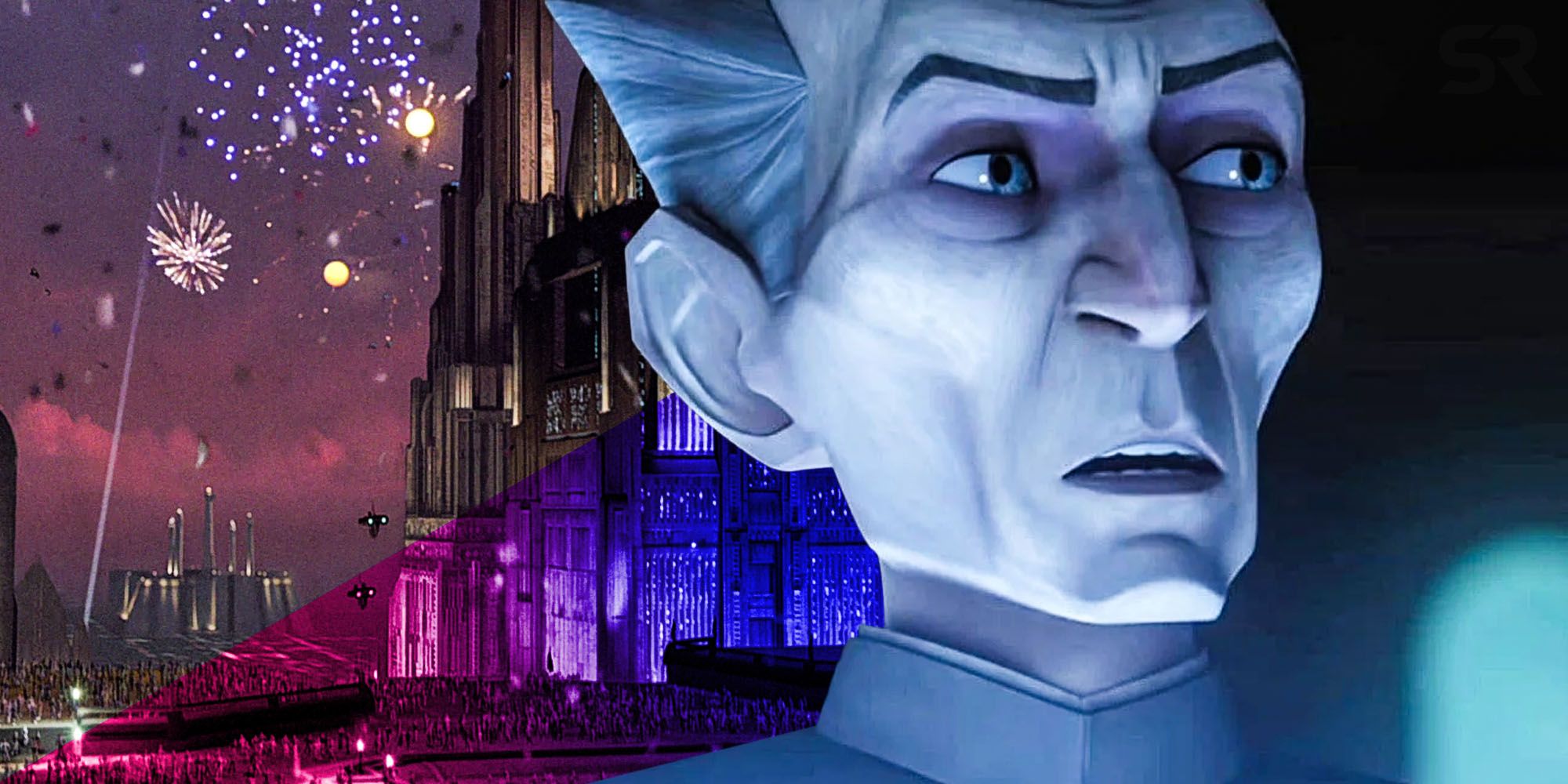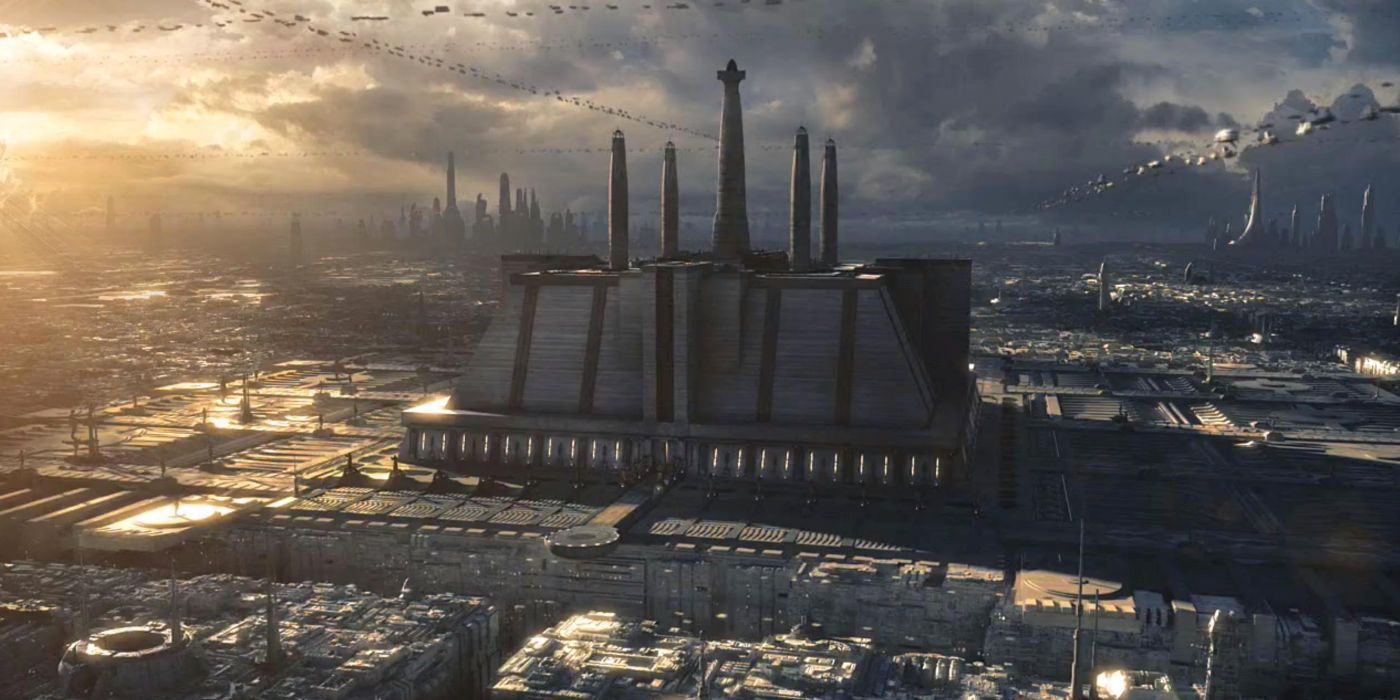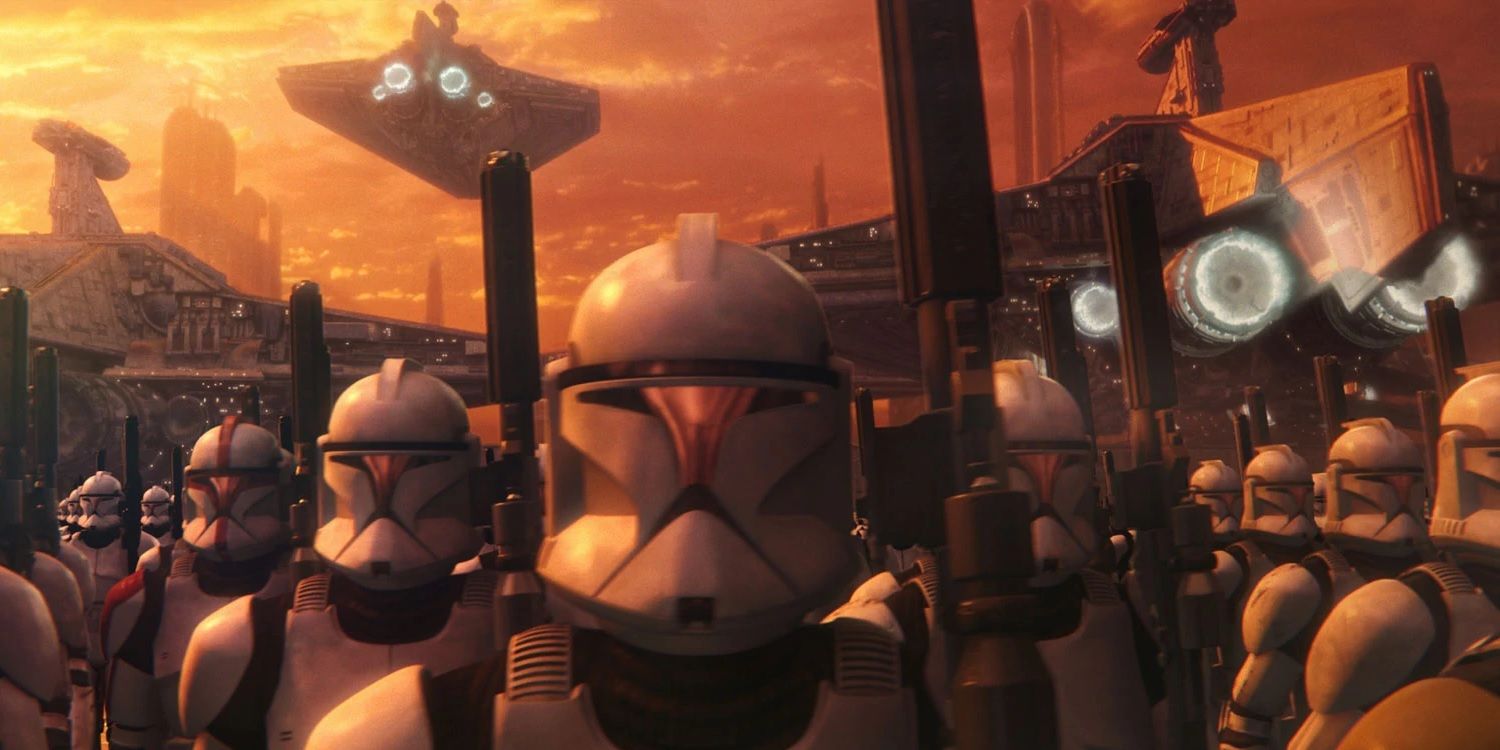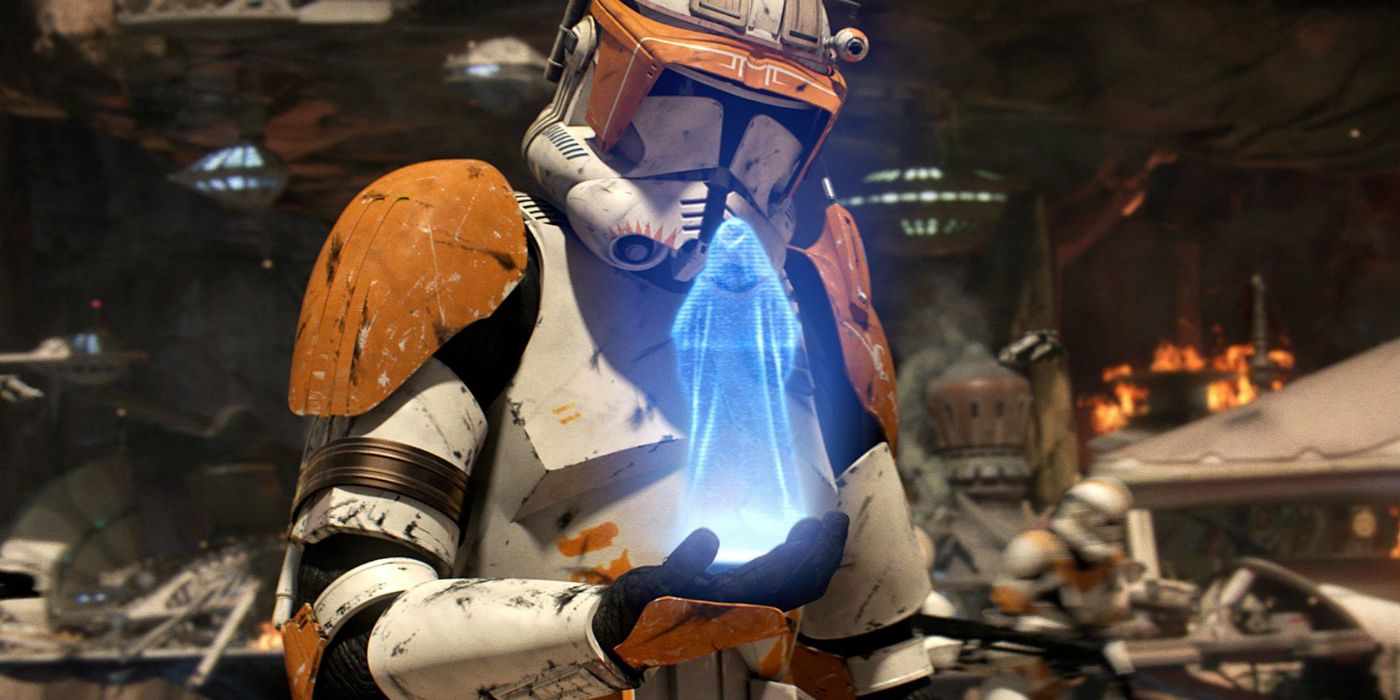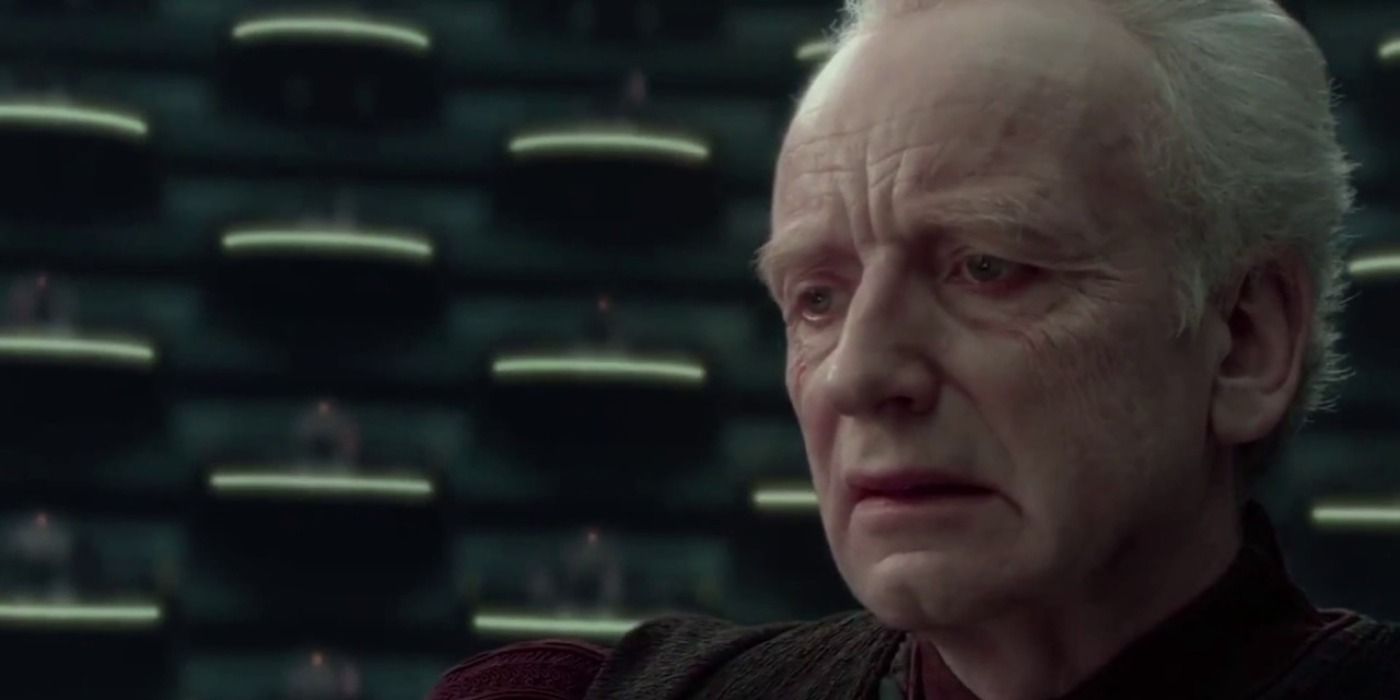Star Wars: The Bad Batch confirms many planets in the galaxy originally celebrated the establishment of the Empire - and with good reason. The Empire and its leaders are the quintessential villains of Star Wars, brutal and ruthless, best known for their deployment of superweapons and their willingness to destroy entire worlds and civilizations. At the head of the Empire is Palpatine, a.k.a. Darth Sidious, the Sith Lord who orchestrated the Clone Wars and Order 66 as the ultimate Jedi trap.
But, because viewers think of the Empire as the villains, it's easy to forget the galaxy didn't think the same. When Palpatine declared the Republic had been transformed into what he called "the first Galactic Empire" in Star Wars: Episode III - Revenge of the Sith, his pronouncement was greeted not with fear but with joy. As Padmé Amidala herself reflected, "So this is how liberty dies - with thunderous applause." The majority of the Senators, and indeed most of the galaxy's population, believed the formation of the Empire was a good thing. And Palpatine took full advantage of their initial naivety, creating a system that encouraged them to buy into the Empire's corruption and become part of it until they had compromised so much they could not stand against him.
But why did the public celebrate the Empire? In order to understand that, an examination of galactic events over the preceding centuries is necessary - as well as how the Clone Wars killed more than just the Jedi.
The Republic Had Been Failing For Centuries
It's important to understand that, by the time of the prequel trilogy, the Republic had been in decline for centuries. The Republic had traditionally been centered in the Galactic Core, but around 200 years before the events of Star Wars: Episode I - The Phantom Menace it began to look outward, extending its reach into the Outer Rim. Unfortunately, this seems to have been a case of overreach, because in this so-called "High Republic Era" the Republic encountered threats that forced its leaders to make difficult compromises. Making matters worse, as time passed the Jedi became drawn into galactic politics until they were indivisible from the Republic itself. To the everyday citizens of the galaxy, the Republic and the Jedi ceased to be a force for good; at best they were an irrelevance, even ignoring slavery on Coruscant's under-levels, and at worst they were a heavy-handed, bureaucratic force who got in people's ways. By the time of the prequel trilogy, the light of the Republic was already nothing more than a flickering candle.
The Clone Wars Had Left The Galaxy In Chaos
Darth Sidious and his apprentice, Count Dooku, were able to exploit the general disaffection with the Republic in order to orchestrate the Clone Wars. The galaxy had never seen a conflict like the Clone Wars, with vast armies clashing on countless worlds. Making matters worse, to the public the Separatist cause was entirely understandable, and the Republic seemed to be doing nothing more than attempting to maintain its power. The Jedi became embroiled in the Clone Wars, no longer mixing with ordinary people, consumed with military matters - and thus they became symbols of the Clone Wars in the eyes of the populace. The final days of the Clone Wars saw the Separatists successfully launch a strike on Coruscant, even kidnapping Supreme Chancellor Palpatine, and the weakness and fragility of the Republic was exposed for all to see. The people were hungry for change.
The Jedi Were Blamed For The Clone Wars
And then came Order 66. Again, because viewers tend to take the side of the Jedi, Order 66 is perceived as the greatest atrocity of all - the culmination of all Palpatine's plans, the ultimate revenge of the Sith. But Palpatine cast the Jedi as rebels who had attempted to overthrow the Republic, using a manipulated recordings of his conversation with Mace Windu to prove the point. The public no longer had any affinity with the Jedi, for most of them had never met a Jedi, and the Force-users had been preoccupied with matters of politics and war. They found the lie of the Jedi Rebellion perfectly believable, and it didn't take long for Palpatine to go one step further, blaming the Jedi for the Clone Wars.
It is a matter of basic psychology that people don't like to imagine life is subject to chance, and that chaotic events on a grand scale are actually out of control. This is the basis of every conspiracy theory, and in the Star Wars galaxy, there was an element of truth to all the theories – the Clone Wars really had been orchestrated by a sinister force. But Palpatine's deceit was particularly inspired because the one who was truly manipulating affairs across the galaxy had provided a convenient scapegoat. All the best lies are half-truths, and anyone who looked into the Clone Wars and discovered evidence of manipulation would naturally see this as supporting Palpatine's claims.
Palpatine Cast Himself As A Hero
The public had lost faith in the Senate and in the Jedi, but Palpatine had carefully cultivated the idea he was one of the people, and he alone was still trusted. His importance was underlined when Count Dooku kidnapped him during the Battle of Coruscant, as though even the Separatists knew the Republic would fail without him. And then, just days later, Palpatine claimed the Jedi - the ones he blamed for the Clone Wars - had attempted to kill him, leaving him horrifically scarred. The secret Sith Lord positioned himself as a hero, whose desire to do good for the galaxy had been opposed by petty politicians in the Senate and warlike Jedi, and most of the public were desperate to believe him. And then, in a bold pronouncement, Palpatine declared the age of the Republic was over. It was a popular message, a promise of change to a galaxy weary of the status quo.
This is why the Empire was popular. And the new Emperor wasted no time implementing a regime to reinforce his rule, to ensure he remained popular. The day of the Empire's foundation became a galactic holiday, Empire Day, and for decades all the Empire's worst atrocities were carried out on worlds far from the more heavily-populated Galactic Core. It was only when the Empire destroyed Alderaan that people began to doubt, and by then most had been drawn into the regime too much, corrupted to the point they rationalized away even an act of genocide, or feared similar repercussions to the fate of Alderaan. As Padmé Amidala had so rightly observed: In Star Wars, democracy died with thunderous applause.

